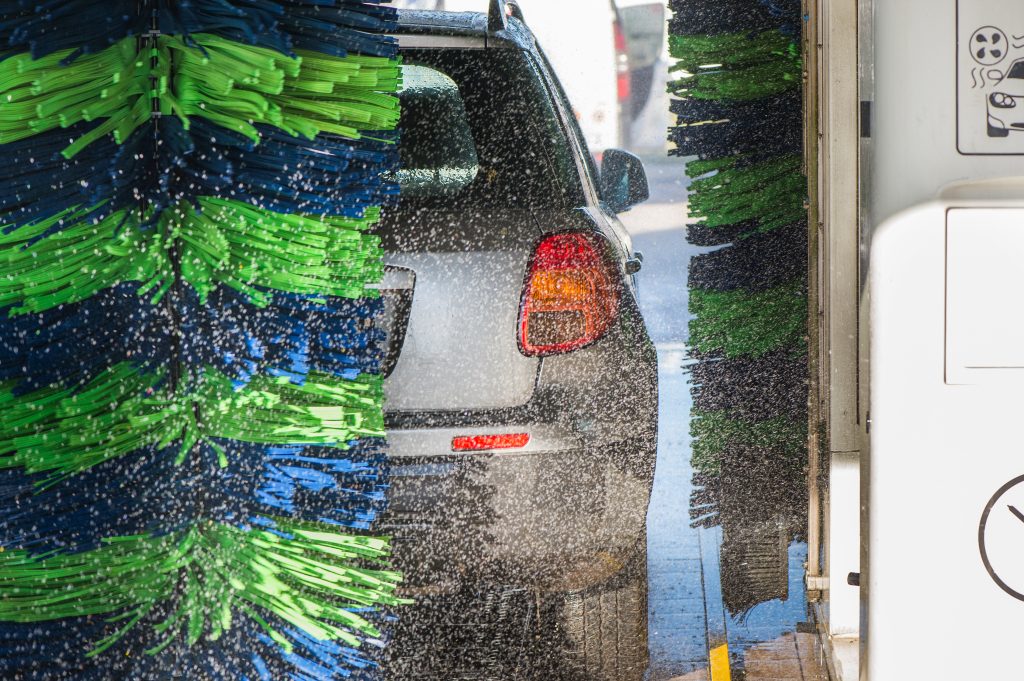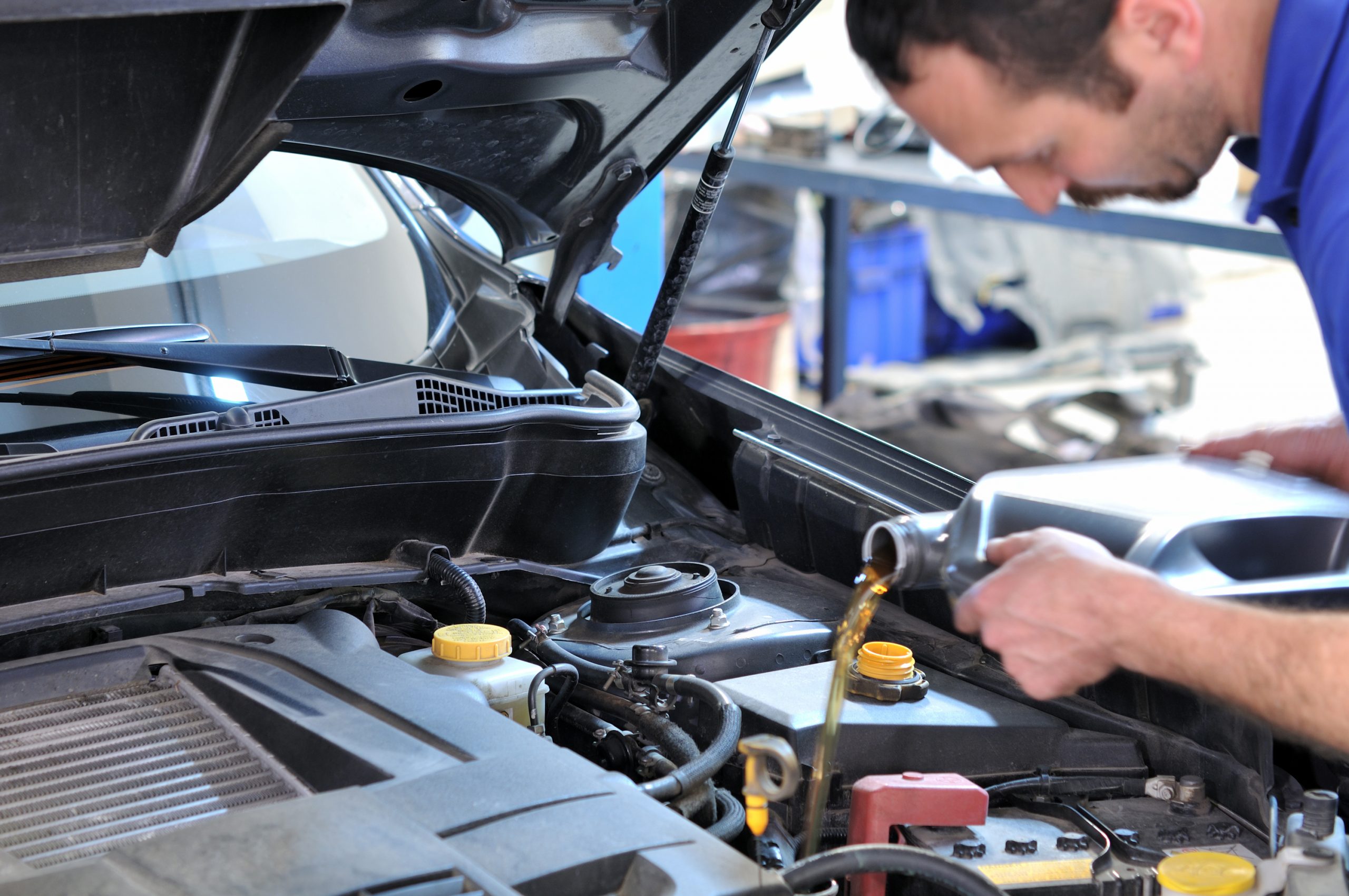Oil, grease, antifreeze, and other toxic automotive fluids need to be properly managed so that they don’t end up polluting the environment. Vehicle fluid spills should never be washed into the storm drain or into the sanitary sewer (sinks, toilets, etc.). Water that runs off sidewalks, alleys, and street gutters flows into storm drains, which flows directly to the Bay or Ocean without treatment of any kind!
Best Practices
Follow these best practices to prevent pollution, protect public health, and avoid fines or other enforcement action:
Cleaning Auto Parts: Scrape parts with a wire brush or use a bake oven rather than liquid cleaners. Arrange drip pans, drying racks, and drainboards so that fluids are directed back into the sink or the fluid holding tank. Do not wash parts or equipment in a parking lot, driveway, or street.
Cleaning Spills: Follow your hazardous materials response plan, as filed with your local fire department or other hazardous materials authority. Be sure that all employees are aware of the plan and are capable of implementing each phase of the plan. Use dry methods for spill cleanup (sweeping, absorbent materials, etc.). To report serious spills, call 911.
Disposing Hazardous Waste: Recycle used motor oil and oil filters, antifreeze and other hazardous automotive fluids, batteries, tires, and metal filings collected from grinding/polishing auto parts. Contact a licensed hazardous waste hauler for recycling. Click here to learn more about the Very Small Quantity Generator (VSQG) Program.
Metal Grinding & Polishing: Keep a bin under your lathe or grinder to capture metal filings. Send uncontaminated filings to a scrap metal recycler for reclamation. Store metal filings in a covered container or indoors.
Preventing Leaks & Spills: Place drip pans underneath to capture fluids. Use absorbent cleaning agents instead of water to clean work areas.

Storing Hazardous Waste: Keep your liquid waste separated. Many fluids can be recycled via hazardous waste disposal companies if they are not mixed. Store all materials under cover with spill containment or inside to prevent contamination of rainwater runoff.
Washing Vehicles: Wash vehicles where the wash water can soak into grass, gravel, or be diverted to nearby landscaping, away from the street and storm drains. Wash vehicles at a designated wash rack that is connected to the sanitary sewer or take vehicles to a professional car wash. Use soaps, cleaners and detergents that are labeled phosphate free or biodegradable. The safest products for the environment are vegetable-based or citrus-based soaps.
Very Small Quantity Generator (VSQG) Program
Some businesses generate very little hazardous waste and may be eligible to participate in the Very Small Quantity Generator (VSQG) Program. The Program is designed to provide an inexpensive hazardous waste disposal option to these companies, non-profits, and other entities instead of contracting with a commercial hazardous waste management firm.
The Program operates by appointment only. Click here to learn more.
Additional Resources
- CASQA Industrial/Commercial BMP Handbook Fact Sheet BG-20 Automotive Service Facility – Body Repair
- CASQA Industrial/Commercial BMP Handbook Fact Sheet BG-21 Automotive Service Facility – Maintenance
- CASQA Industrial/Commercial BMP Handbook Fact Sheet BG-22 Automotive Service Facility – Service Stations
- CASQA Industrial/Commercial BMP Handbook Fact Sheet BG-23 Automotive Service Facility – Auto Recycling
- Vehicle Service Facilities PDF: English | Spanish | Chinese
- Automotive Service Poster PDF: English | Spanish | Chinese
- How Your Business Can Prevent Stormwater Pollution: English | Spanish | Chinese
- Best Management Practices for Mobile Fueling: English
- California EPA Fact Sheet on Antifreeze Recycling
- Best Management Practice Guide Retail Gasoline Outlets
Contact Information
- Stormwater Business Inspectors: Municipal Stormwater Inspectors visit commercial and industrial businesses to help them understand and comply with stormwater pollution control requirements.
- Sanitary Sewer Treatment Authorities: All discharges to sanitary sewer must be approved by your local sanitary sewer treatment authority.
- Local Hazardous Waste Regulator: The San Mateo County Environmental Health Division is the Certified Unified Program Agency (CUPA) for all areas of San Mateo County and can be reached at: (650) 372-6200.
